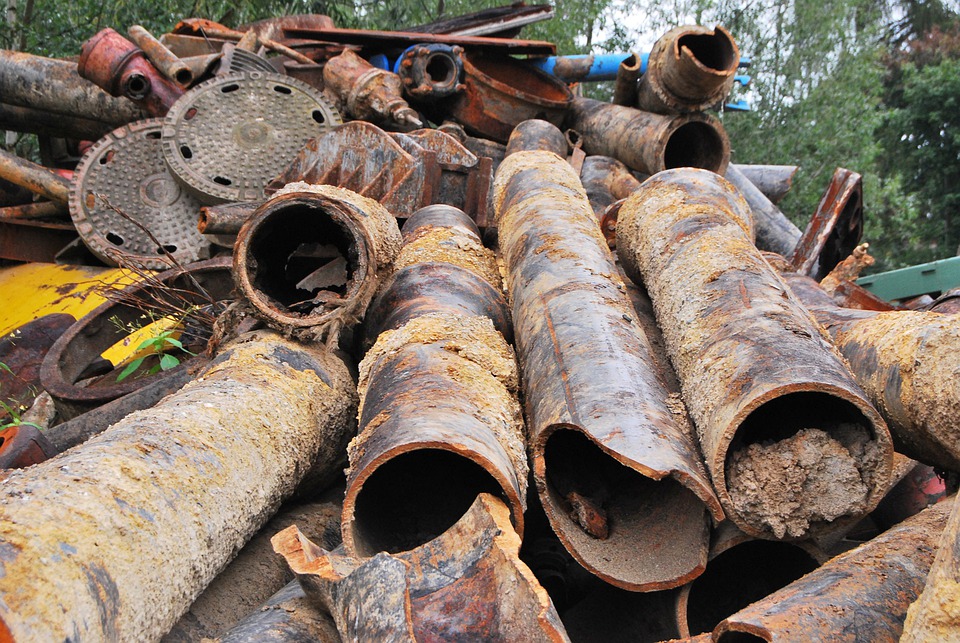We hunted for steel along flat-bottom train rails—glass
blanketing the gravel track bed like chicken feed,
jimson weed between creosote-steeped timbers—
picked over buckled trailers and garbage stacks:
cracked pump heads, mower blades, band saws rusted mid-cut.
The clang of spikes and bolt heads lobbed into a bucket
was a lesson he taught me in milking the wasted land.
—Mark Jay Brewin Jr., “Scrap Iron”
A man pushes a shopping cart full to overflowing with cracked hubcaps and rolls of chain link and empty tins just starting to rust. A pickup already loaded down with eyeless stoves and disgorged radiator coils patrols the slums in search of more castoff appliances. The basement of a new-built suburban house gleams with the stumps of copper pipes shorn off by hacksaw blades, the plumbing stripped out the week after it went in. This is the work of the scrap peddler. Peddlers are gleaners in the industrial economy, reaping on the unprofitable margins. I grew up around them, because my family bought their harvest.
Login to read more
Sign in or create a free account to access Subscriber-only content.
